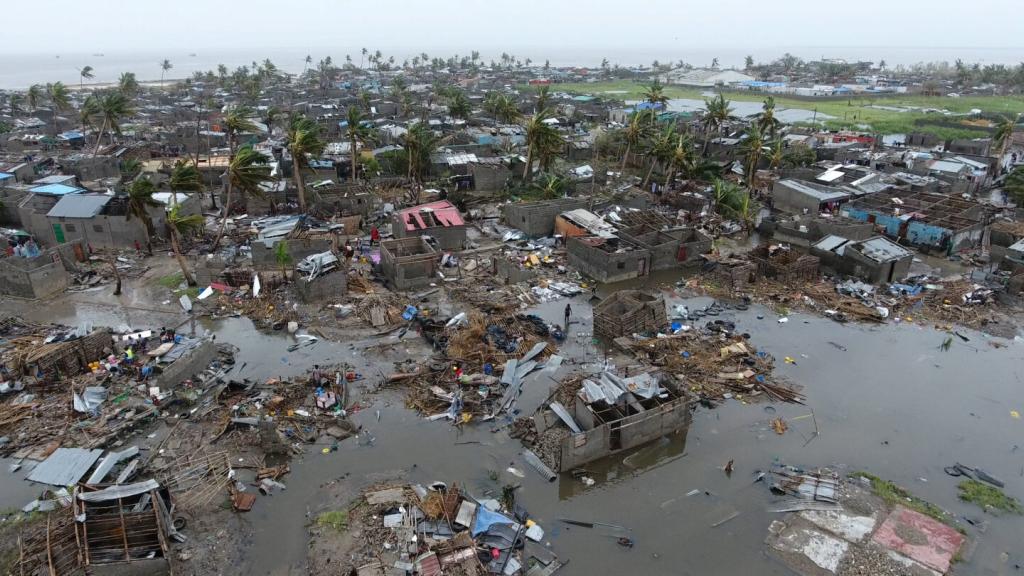Mozambique on a knife’s edge

First published at Zabalaza for Socialism.
The armed conflict in Cabo Delgado between Islamic State–aligned fighters and mercenary forces led by the Rwandan military has escalated sharply in recent weeks. This surge in violence coincides with efforts to reopen the region’s lucrative gas facilities. At the same time, the Frelimo-controlled state is moving to prosecute popular opposition leader Venâncio Mondlane on trumped-up terrorism charges. Mondlane has been a key figure in mobilising mass protests since October last year — protests that have, according to credible sources, already claimed some 600 lives.
From liberation to neoliberal capture
Mozambique won its independence 50 years ago through the determined struggle of the people, led by Frelimo. Liberation was not just a change of flags — it brought real, tangible gains. In the first decade after 1975, the new state launched a mass literacy campaign that reduced illiteracy from over 90% to under 50% in a few short years. A national health service was established, with rural clinics and hospitals built in areas the colonial regime had abandoned. Vaccination programmes sharply reduced infant mortality. Land reform ended the settler plantation system, redistributing land to peasant communities and boosting food production in the countryside. For the first time, millions had access to education, healthcare, and land — the basic means to live with dignity.
But liberation was quickly sabotaged. A breakaway faction—armed and backed by apartheid South Africa, white-minority Rhodesia, and Western powers — plunged the country into a devastating 15-year war. The human toll was immense: a million dead, millions more displaced. The dream of breaking the extractive colonial model was strangled in its infancy.
By the late 1980s, the war-weary state was kept afloat by Western aid — aid tied to International Monetary Fund (IMF) and World Bank conditions. These institutions dictated a neoliberal restructuring programme: mass privatisation, cuts to social spending, and an open invitation for the political elite to enrich themselves. From the late 1990s to 2016, foreign capital flooded in, driving high GDP growth, but the benefits were monopolised by politically connected elites. The IMF and World Bank froze public sector wages at poverty levels, entrenching inequality. Corruption became endemic — glaring at the top, corrosive at the base.
Resistance and repression
The trade union movement, shackled to the state, offered little resistance. But ordinary Mozambicans took to the streets — spontaneously — over rising food and transport costs. In 2013, tens of thousands marched in Maputo against the resumption of armed conflict between Frelimo and Renamo. The roots of that conflict lay in electoral fraud, corruption, and the plunder of natural resources.
Renamo’s demand to “depoliticise the state” was vindicated when the 2016 “hidden loans” scandal broke — $2 billion in secret, illegal loans from Credit Suisse, enriching scores of Frelimo officials while bankrupting the country. The state could no longer pay public sector wages. Millions were driven deeper into poverty. The crisis remains unresolved.
Cabo Delgado: Imperial plunder in the 21st century
In Cabo Delgado, local communities’ resistance to resource grabs by Frelimo politicians and multinational corporations has been met with ruthless violence. The region is rich in gas, rubies, graphite, and other resources, but the people see none of the wealth. Instead, they face displacement, militarisation, and deepening poverty. In this vacuum, armed groups have taken root, feeding off legitimate grievances.
South Africa plays its part in this plunder. Sasol has exploited Mozambican gas for two decades, leaving the country with a pittance of the revenues, while displaced communities and fisherfolk have received little or no compensation. The same scenario looms in Cabo Delgado.
Now, Total demands $4.5 billion be deducted from its taxes to pay for security, insisting on a fully militarised zone around its operations. Portuguese oil giant Galp refuses to pay taxes on the sale of its stake in a gas consortium to a UAE buyer. This is neo-colonialism laid bare — imperialist capital dictating terms to a captured state.
A country on the boil
Across Mozambique, the naked extraction of wealth — from coal to forests to fisheries — without benefit to the people is fuelling nationwide anger. Environmental destruction undermines food sovereignty. Climate disasters, especially cyclones battering the coastal provinces, deepen rural misery.
In the cities, “jobless growth” has given way to outright recession since 2016. Youth unemployment is exploding. The 2023 murder of Azagaia, a prominent political rapper, brought thousands onto the streets. The blatant electoral theft against Mondlane in the presidential and national elections became the spark for the largest protest movement since independence.
The struggle ahead
This movement is not only about stolen elections — it is rooted in an economic crisis that has crushed livelihoods and futures. The revolt has spread from the cities to the extractive zones, uniting urban youth with rural communities in defiance of the neoliberal order.
Frelimo is rattled. It is moving to crush dissent through arrests, militarisation, and intimidation. But its ability to do so will depend on whether the opposition — rallying around Mondlane — can link the fight against electoral fraud to the broader struggle against the plunder of Mozambique’s wealth, the domination of foreign capital, and the capture of the state by a corrupt elite.
The stakes are clear: either the people take control of their resources and their democracy, or imperialism and its local agents will continue to drain the lifeblood of the nation. The people have awoken. The question is whether this awakening will grow into an organised, revolutionary movement capable of breaking the chains that still bind Mozambique 50 years after independence.